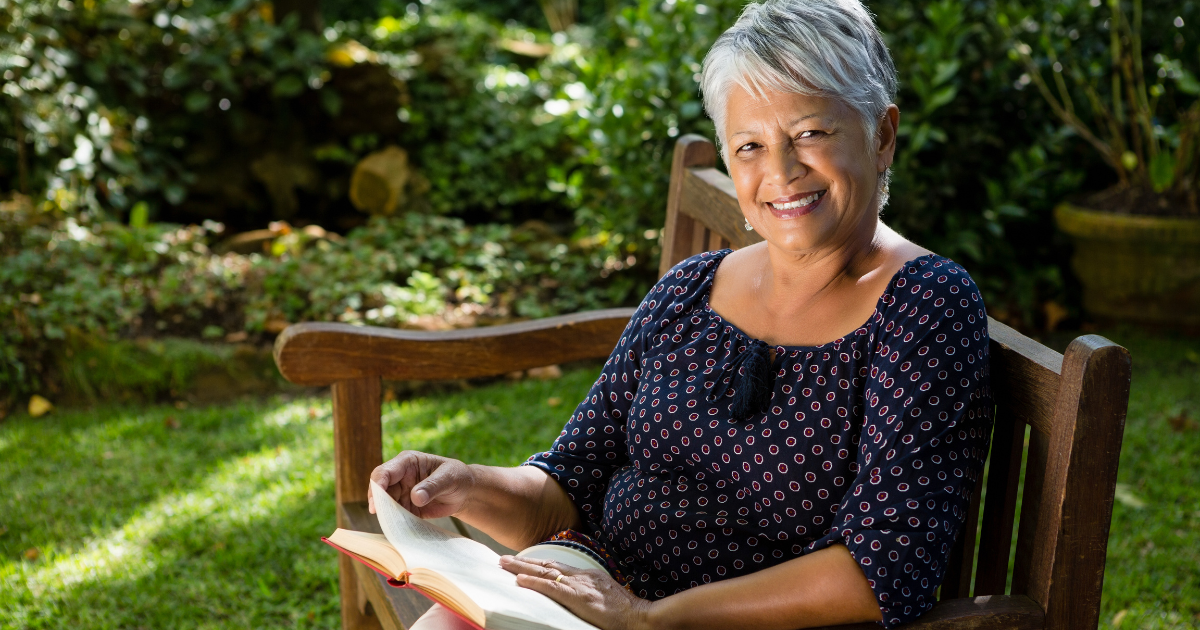Essential Self-Care Tips for Seniors

As we age, prioritizing self-care becomes increasingly important to maintain our physical, mental, and emotional well-being. Self-care practices help seniors stay active, independent, and enjoy a fulfilling lifestyle. Whether you're a senior or caring for an elderly loved one, these self-care strategies will serve as a valuable resource to enhance overall quality of life.
Stay Active and Exercise Regularly:
Engaging in regular physical activity offers numerous health benefits for seniors. Gentle exercises like walking, swimming, or yoga help improve cardiovascular health, flexibility, and muscle strength. Opt for activities that suit your abilities and preferences, and consider seeking professional guidance from a qualified fitness trainer or physical therapist.
Prioritize Proper Nutrition:
Maintaining a well-balanced diet is essential for seniors' overall health. Consume a variety of fruits, vegetables, whole grains, lean proteins, and low-fat dairy products. Limit the intake of processed foods, sugary snacks, and beverages. Staying hydrated is also crucial, so make sure to drink plenty of water throughout the day.
Foster Social Connections:
Loneliness and social isolation can have detrimental effects on seniors' mental health. Make an effort to connect with friends, family, and community. Join social clubs, participate in group activities, or volunteer in organizations that align with your interests. Social connections play a vital role in promoting mental stimulation and emotional well-being. Our senior companionship services can you or your loved ones maintain social connections that can help with physical, mental, and emotional benefits.
Prioritize Mental Health:
Engaging in activities that stimulate the mind is crucial for seniors. Solve puzzles, read books, learn new skills, or take up a hobby that challenges and interests you. Additionally, consider meditation or mindfulness practices to reduce stress and promote mental clarity. If needed, seek professional help to address any mental health concerns.
Get Sufficient Sleep:
Adequate sleep is crucial for seniors' overall health and well-being. Establish a consistent sleep routine and create a comfortable sleep environment. Avoid stimulating activities or caffeine intake close to bedtime. If sleep problems persist, consult a healthcare professional to rule out any underlying conditions or discuss possible solutions.
Embrace Relaxation Techniques:
Seniors can benefit greatly from incorporating relaxation techniques into their self-care routines. Deep breathing exercises, gentle stretching, aromatherapy, and listening to calming music can promote relaxation and reduce stress levels. Experiment with different techniques to find what works best for you.
Maintain Regular Health Check-ups:
Regular visits to healthcare professionals are vital for preventative care and early detection of any potential health issues. Stay up to date with vaccinations, screenings, and examinations. Address any concerns or changes in your health promptly to ensure timely intervention if necessary.
Engage in Favorite Activities:
Make time for activities that bring you joy and fulfillment. Whether it's gardening, painting, playing a musical instrument, or pursuing a creative outlet, engage in activities that nourish your spirit and enhance your sense of purpose. Plug companionship senior services here
Prioritizing self-care is essential for seniors to lead a healthy, happy, and fulfilling life. By incorporating these self-care tips into your routine, you can promote physical, mental, and emotional well-being as you age gracefully. Remember, it's never too late to invest in yourself and embrace a self-care practice that resonates with you.
Sources:
- Mayo Clinic - Healthy Aging: https://www.mayoclinic.org/healthy-lifestyle/healthy-aging/basics/healthy-aging-basics/hlv-20049407
- National Institute on Aging - Exercise and Physical Activity: Your Everyday Guide: https://www.nia.nih.gov/health/exercise-physical-activity
- American Heart Association - Healthy Eating for Older Adults: https://www.heart.org/en/healthy-living/healthy-eating/eat-smart/nutrition-basics/healthy-eating-for-older-adults
- National Institute on Aging - Social Wellness: https://www.nia.nih.gov/health/social-wellness
- Harvard Health Publishing - Exercise is an All-Natural Treatment to Fight Depression: https://www.health.harvard.edu/mind-and-mood/exercise-is-an-all-natural-treatment-to-fight-depression
- National Sleep Foundation - Sleep and Aging: https://www.sleepfoundation.org/older-adults
- Anxiety and Depression Association of America - Mindfulness Practices: https://adaa.org/understanding-anxiety/related-illnesses/other-related-conditions/stress/physical-activity-reduces-st
- Centers for Disease Control and Prevention - Preventive Care for Older Adults: https://www.cdc.gov/aging/healthyaging/preventive-care.html